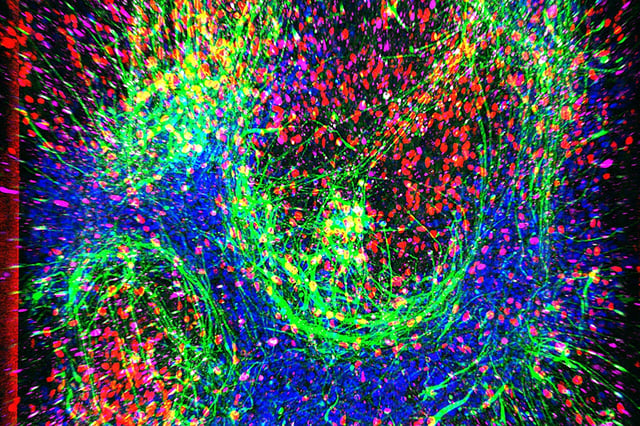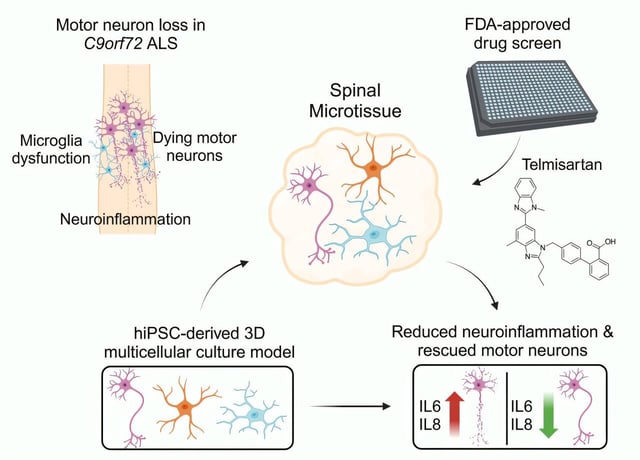Overview
- Spinal microtissues created from ALS patient stem cells reproduce key disease features, including elevated inflammatory protein release and progressive motor neuron loss.
- Screening of 190 FDA-approved drugs in these microtissues revealed a drug class that normalized inflammatory markers and reduced neuron death.
- The ‘ALS on a chip’ system integrates motor neurons with blood-brain barrier cells under simulated blood flow to capture dynamic aspects of disease progression.
- Early chip-based analyses uncovered altered glutamate signaling in ALS motor neurons that may drive their dysfunction over time.
- Researchers are now delivering candidate drugs through the chip’s vascular channel to test whether targeting glutamate pathways can prevent motor neuron degeneration.

